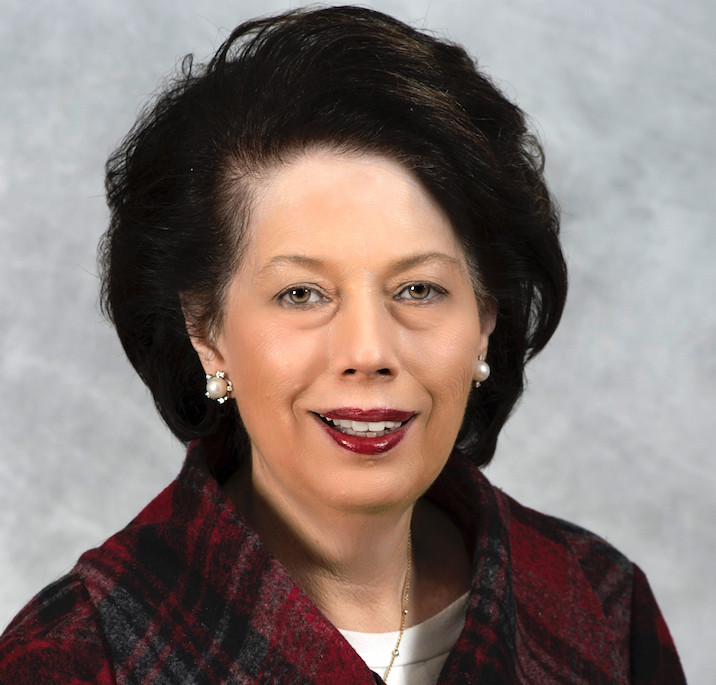Saluting Phyllis Horowitz, HAFTR’s librarian
This coming motzei Shabbat Zachor, one of our community’s oldest educational institutions, the Hebrew Academy of the Five Towns and Rockaway, will honoring one of its most distinguished staff members, Phyllis Horowitz, as its Educator of the Year.
This week’s column, normally dedicated to books, will be dedicated to a lover of books and her legacy as a school librarian. Much of the following is based on an online interview.
“It is a great honor, indeed, to have been selected Educator of the Year in celebration of HAFTR’s 40th anniversary dinner,” Horowitz said. “My Hebrew education began by attending Central Yeshiva High School for Girls in Brooklyn. I received a degree in education and a masters degree in early childhood from Brooklyn College. Over the years I took courses at Bank Street Graduate School of Education in Manhattan.
“My educational purpose and mission in life has always been to devote my efforts to help children succeed in reaching their goals. The journey to increase my skills and knowledge encouraged me to participate in Operation Head Start, a full year intervention program sponsored by Columbia University.
“My first classroom assignment was through the New York City Board of Education. I secured a position in Ocean Hill Brownsville, an underprivileged school district. Remarkably, many of those students continue to reach out to me, recalling the times we worked together in building their healthy future.
“Soon, Murray and I were married, and some years later we, together with our four children, moved from Brooklyn to Woodmere where we had our fifth child.
“Shortly thereafter, I accepted a teaching position at the Torah Academy for Girls. Then, ten years later, I joined the teaching staff at HAFTR, teaching in the elementary and middle divisions. When Rabbi Bess, the principal at that time, offered me a position in the HAFTR library, I enthusiastically embraced the opportunity. I could envision lighting the paths of our students with wisdom and enchantment of Jewish folktales, Biblical literacy, and Jewish humor.
“In 1989, we moved to Lawrence and became members of Congregation Beth Shalom and to be spiritually enriched by the leadership of its rabbi, Rabbi Kenneth Hain, and his talented wife, Nancy.
“Murray and I have worked diligently to raise our five children, and in bonding with our 15 grandchildren, we receive much love in return.”
“My hobbies? Books are my Utopia! Give me a book and a piece of chocolate and I am in Heaven!”
When asked about her current readings I was much taken by her noting at the head of the list is Francine Klagsbrun’s “Lioness: Golda Meir and the Nation of Israel.” Inasmuch as I had the honor of both knowing and doing business with Golda, I was most impressed with this prime listing. Hopefully, I will, iy”H, read and review this work, and hope that my regard for Golda will be vindicated by Klagsbrun’s take.
It is not every day that a school honors one of the stewards of its library and its books. Thank you HAFTR for setting the marker for other schools to do likewise and to recognize and honor their hard working and dedicated librarians.
And, while I still have my smile, may I take this opportunity to wish you all, my dear and dedicated readers, a most joyous and safe Purim holiday.
Mishloach Manot: A Purim story hiding in plain sight … this motzei Shabbos at YIW
In addition to reading the book of Esther, Purim is primarily celebrated through two mitzvot: mishloach manot and matanot la’evyonim. Mishloach manot is the practice of giving gifts to friends and family and matanot la’evyonim is the act of giving gifts to the poor.
But what makes mishloach manot and matanot la’evyonim unique to Purim? Sure these are great mitzvot to do — but why do them on Purim, specifically?
Through a careful examination of the Purim story, Rabbi Fohrman explores the subtle whispers and foreshadows of these two mitzvot in the text. What emerges is a unique story of the discrete dialogue shared between Queen Esther and Mordechai during this period in the turbulent, Persian Empire.
Join Rabbi Fohrman as he explores this fascinating backstory — and never give mishloach manot the same way again. He’ll be speaking this motzei Shabbos, Feb. 27, at the Young Israel of Woodmere, at 8:30 pm.

 46.0°,
Light Drizzle
46.0°,
Light Drizzle 




